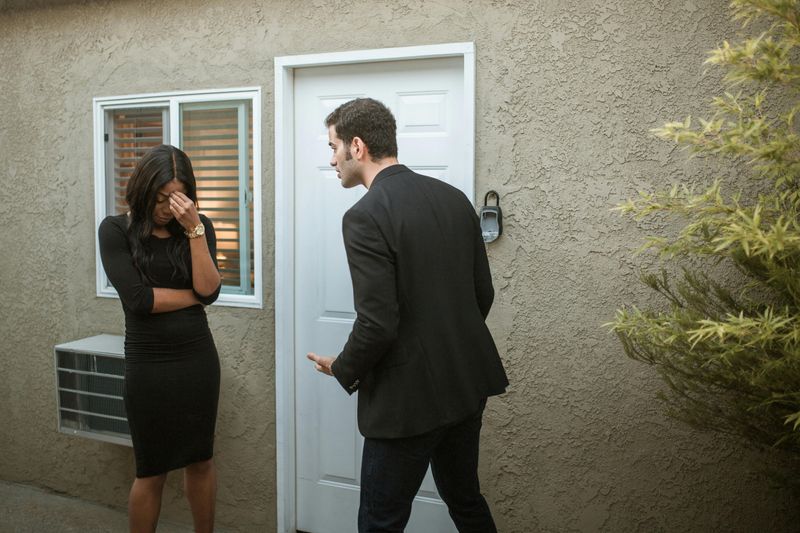10 Subtle Relationship Mistakes That Turn Love Into Cold Resentment

Even the strongest partnerships can erode quietly, not from grand betrayals but through everyday missteps. Small words, unspoken frustrations, and unnoticed habits chip away at intimacy until warmth fades and distance grows. What begins as minor oversights can accumulate into walls of silence and hurt. Recognizing these subtle patterns early is the first step toward rebuilding trust, keeping affection alive, and transforming resentment back into genuine connection.
1. Using Absolute Words Like “Always” and “Never”

The sting of absolute words like “always” or “never” can linger long after an argument ends. When criticism shifts into a judgment of your partner’s entire character, it leaves little room for understanding or growth.
Instead of highlighting a specific behavior, absolutes transform mistakes into personal failures. The person on the receiving end feels attacked rather than heard, and that defensiveness makes true communication nearly impossible.
Over time, repeating these words can bury affection under layers of hurt. Relationships thrive on nuance and patience, not black-and-white thinking. Shifting language to focus on the moment, not the person, preserves kindness and keeps resentment at bay.
2. Saying “Should” and “Shouldn’t”

The phrase “you should know how I feel” carries an unspoken heaviness, as though one partner is failing an invisible test. Expectations create unseen walls, and disappointment follows quickly when reality doesn’t measure up.
Each “should” and “shouldn’t” drips with blame, leaving partners feeling pressured, misunderstood, or inadequate. What should be emotional safety often gets replaced by the stress of meeting unspoken standards.
Though subtle, this pattern steadily fuels frustration. The relationship shifts into a battlefield of quiet rules and unmet hopes. By expressing needs openly instead of through expectation, couples can dissolve tension and replace coldness with clarity and care.
3. Ignoring Your Personal Triggers

Ever wonder why small things sometimes ignite big reactions? Often, it’s the hidden emotional landmines we carry from our past. Ignoring your own triggers before addressing conflict can set off explosions where there might have been understanding.
When these triggers go unnoticed, partners may misinterpret each other’s moods or words. Misunderstandings pile up, creating distance and frustration. The other person is left guessing—or worse, feeling blamed for things they can’t control.
Acknowledging personal sensitivities opens space for compassion. Self-awareness is the antidote to accidental resentment, allowing both people to navigate disagreements with empathy instead of judgment.
4. Reacting Without Thinking

Picture a heated moment: words fly before thoughts can catch up. Emotional snap reactions—whether shouting or shutting down—often leave scars that outlast the argument itself. The other person may retreat, feeling misunderstood or unimportant.
Impulsively reacting often escalates minor issues. Walls go up, and genuine solutions become harder to find. The moment may pass, but the sting lingers far longer.
Taking a breath before responding isn’t just advice—it’s a relationship saver. Pausing gives space for both voices to be heard, keeping connection intact and bitterness from taking root.
5. Seeing Yourself as the Victim

It’s easy to slip into a victim mindset when things go wrong, but seeing yourself as powerless traps both partners in a cycle of blame and helplessness. What begins as frustration quickly hardens into emotional distance.
Problem-solving stalls when one person feels perpetually wronged. Instead of working together, partners drift into separate emotional corners. Solutions fade as self-pity takes center stage, leaving the relationship stuck.
Resilience grows when responsibility is shared, not when one partner plays the martyr. Shifting away from victimhood restores agency—and sometimes hope. Even small changes in perspective can help thaw the chill between two people.
6. Letting Go When You Should Be Forgiving or Solving Problems

Some wounds don’t heal simply because they’re ignored. Letting go of issues without real forgiveness or problem-solving doesn’t clear the air—it preserves the hurt in silence. Each unresolved moment becomes a tiny wedge.
Over time, resentment accumulates where openness could have built bridges. Couples become experts at avoiding certain topics, but those subjects never truly disappear. They fester in the quiet spaces between conversations.
The courage to address problems with honesty can repair what neglect cannot. Facing issues head-on signals care, while silence signals surrender. True resolution brings warmth back to the relationship.
7. Focusing on the Negative

Every relationship has flaws, but constantly spotlighting them turns affection sour. Reciting disappointments or highlighting mistakes drowns out the good moments. Over time, partners begin to feel undervalued or invisible.
Appreciation can easily be lost in the pursuit of improvement. The warmth that once fueled connection fades, replaced by a cold accounting of grievances. Each listing of faults creates another crack in intimacy.
Shifting focus to gratitude isn’t just feel-good advice—it’s essential maintenance. Noticing the small joys allows love to breathe and softens the rough edges created by resentment.
8. Letting Resentment Bloom

Resentment rarely bursts forth; it grows quietly, drop by drop, as hurts go unspoken or forgiveness is withheld. A relationship can feel icy, even when both partners still care, because the silence between them begins to weigh more than their words.
Bitterness colors every interaction once it takes root. Small grievances become amplified, and minor annoyances start to feel like personal attacks.
Distance grows slowly and almost imperceptibly until warmth feels impossible to reach again. Letting go of old wounds and openly communicating about pain reverses this freeze. Vulnerability is a risk, but also the only true thaw.
9. Lying by Omission

Sometimes the truth comes dressed in silence, not deception. Lying by omission—leaving out information to avoid conflict—might seem harmless, but it quietly fractures trust. Each withheld detail becomes a secret wall.
The partner kept in the dark senses that something isn’t right, even if they can’t identify the cause. Doubt and suspicion begin to replace ease and openness. Both people grow wary, stepping lightly around each other.
Honesty, even when uncomfortable, is glue for intimacy. Sharing the inconvenient truths builds resilience and invites closeness instead of cold suspicion.
10. Not Following Through on Commitments

Broken promises, no matter how small, accumulate over time. Forgetting date nights, neglecting shared chores, or simply not following through on commitments undermines more than trust—it signals disregard for your partner’s needs and priorities.
Each disappointment chips away at the foundation of reliability a healthy relationship requires. Consistency is the quiet hero of lasting partnerships. Every kept promise acts as a thread, weaving together daily life with respect, stability, and affection.
When those threads break too often, frustration and disconnection emerge in their place. Following through, even on minor commitments, communicates care. Reliability is warmth’s strongest ally.

Comments
Loading…